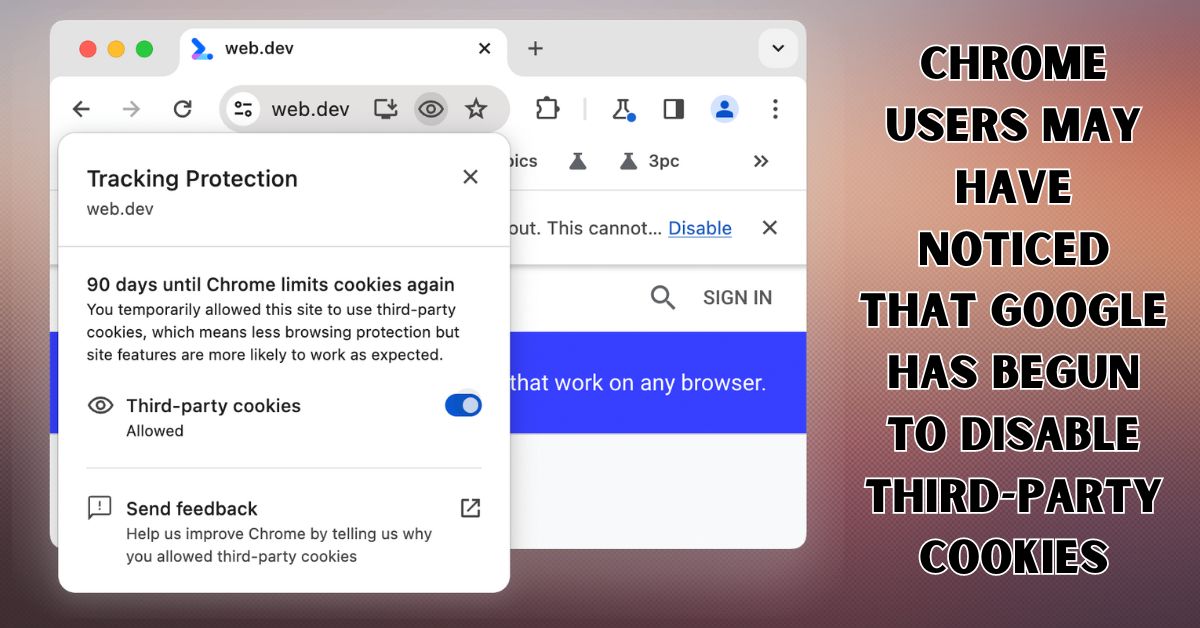Just one percent of Chrome users have had third-party cookies deactivated by Google, years after the launch of the Privacy Sandbox project. Late last year, the business announced how on January 4th, it will disable cookies for 1% of Chrome users worldwide.
According to Gizmodo, 30 million Chrome users have had their cookies disabled since Chrome controls more than half of the global browser market share. When those who are part of this deployment start up their browser, they will be notified that they are among the first to use Tracking Protection.
Additionally, it clarifies that websites cannot use third-party cookies to follow their online movements when they use Tracking Protection. Google will temporarily enable third-party cookies for users in the event that certain websites fail to adjust to the change that will impact the majority of internet users.
Toggle the new function on or off with the click of an eye icon in their browser bar. Ads can still be served to users while their privacy is preserved through Google’s Privacy Sandbox effort, which aims to provide an alternative to cookies.

Users are categorized according to their interests based on their current web surfing activity, and advertisers can utilize this data to show them advertising that are relevant to them. With this method, Google claims it will store user interests for three weeks, and all processing and data storage happens on the device itself, making it less intrusive than cookies.
Officials are looking into the idea because they are worried it will give the corporation even more influence than it has. By mid-2024, assuming all works out as planned, Google will have deactivated third-party cookies for all Chrome users. This will be accomplished by rolling out Tracking Protection over the next few months.
If you obtained pleasure from this technology article, you may potentially find the subsequent content equally enjoyable:
